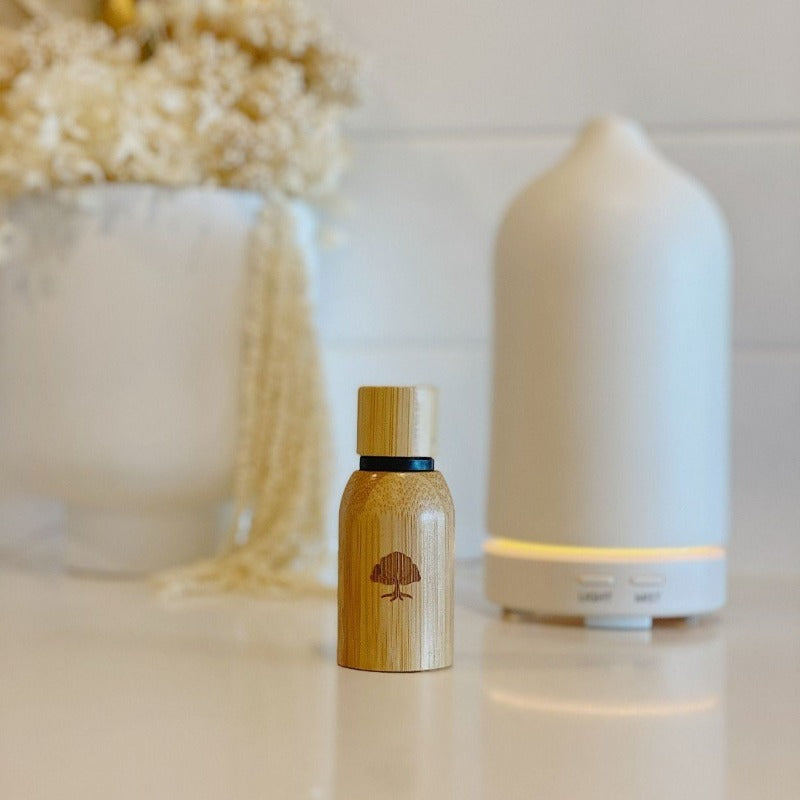
How to Fix Your Sleep Schedule
In our busy world, maintaining a consistent sleep schedule can be a challenge.
Whether it’s late-night work sessions, disrupted routines, or simply the pull of our digital devices, it’s all too easy to find ourselves tossing and turning late into the night. These factors can lead to a disrupted sleep schedule, negatively affecting both our physical and mental health.
However, creating and maintaining a healthy sleep schedule is vital for both mental and physical health. A regular sleep routine not only enhances our overall well-being but also ensures we wake up feeling refreshed and ready to take on the day.
In this article, we’ll explore why having a consistent sleep schedule matters, how to fix or reset your current sleep habits, and why it’s crucial for your mental and physical health.
Why is a Consistent Sleep Schedule Important?
Our bodies operate on a natural circadian rhythm, which is essentially a 24-hour internal clock that helps regulate when we feel alert and when we feel tired. The body clock helps regulate sleep schedules and can be influenced by various factors, including light exposure and lifestyle choices. When we adhere to a regular sleep schedule, we align with this natural rhythm, making it easier to fall asleep and wake up at the right times.
On the other hand, irregular sleep patterns can confuse our bodies, making it difficult to get enough quality sleep. This can lead to a range of issues, including fatigue, irritability, and decreased mental clarity.
Maintaining a consistent sleep schedule allows your body to know when to wind down and when to wake up, resulting in better sleep quality. More importantly, good sleep hygiene has a positive impact on your mental health and physical well-being, boosting mood, energy levels, and productivity.
Understanding Your Sleep Schedule
Understanding your sleep schedule is crucial to maintaining a healthy sleep routine.
A sleep schedule refers to the pattern of sleep and wakefulness that your body follows, regulated by your internal clock. This rhythm is influenced by exposure to light and darkness, which helps control the release of hormones (melatonin and cortisol) that dictate when you feel sleepy or alert.
To get a better grasp of your sleep schedule, start by tracking your sleep patterns. Keep a sleep diary or use a sleep tracking app to monitor your sleep duration, sleep quality, and wake-up times.
This will help you identify any patterns or disruptions in your sleep schedule. By understanding your sleep patterns, you can make informed adjustments to improve your overall sleep quality and establish a healthy sleep routine.
Identifying Sleep Disorders
Sleep disorders can significantly impact your sleep schedule and overall health. Common sleep disorders include insomnia, sleep apnea, restless leg syndrome, and narcolepsy. If you find yourself struggling with falling asleep, staying asleep, or experiencing excessive daytime sleepiness, you might be dealing with a sleep disorder.
Identifying sleep disorders requires a comprehensive evaluation by a healthcare professional. They will assess your sleep patterns, medical history, and lifestyle habits to determine the underlying cause of your sleep issues. Treatment options may include lifestyle changes, behavioural therapies, or medication. Addressing sleep disorders is essential for maintaining a consistent sleep schedule and improving your overall well-being.
For further information on the different sleep disorders, visit Health Direct.
Creating a Sleep-Friendly Environment
Creating a sleep-friendly environment is essential for maintaining a healthy sleep routine. Your bedroom should be a sanctuary for sleep, free from distractions and disruptions. Here are some tips to create a sleep-friendly environment:
- Make your bedroom dark, quiet, and cool.
- Invest in a comfortable mattress and pillows.
- Remove electronic devices, such as TVs and computers, from the bedroom.
- Use a blue light filter on your smartphone or tablet.
By creating a sleep-friendly environment, you can improve the quality of your sleep and establish a consistent sleep schedule. A well-designed sleep space can make it easier to fall asleep and stay asleep, ensuring you wake up refreshed and ready to take on the day.
Establishing a Sleep Routine
Establishing a sleep routine is crucial for maintaining a healthy sleep schedule. A sleep routine refers to the activities you perform before bedtime to prepare your body for sleep.
Here are some tips to establish a sleep routine:
- Set a consistent bedtime and wake-up time.
- Develop a relaxing bedtime routine, such as reading or meditation.
- Avoid stimulating activities before bedtime, such as exercise or watching TV.
- Avoid caffeine and nicotine before bedtime.
- Get some morning sunlight exposure to regulate your circadian rhythm.
By establishing a sleep routine, you can signal to your body that it’s time to sleep, making it easier to fall asleep and stay asleep. Consistency is key to maintaining a healthy sleep schedule and improving your overall sleep quality.
For more information on improving your sleep hygiene, read this resource from The Sleep Foundation.
How to Fix or Reset Your Sleep Schedule
Start by Setting a Bedtime and Wake-Up Time
Begin by choosing a consistent bedtime and wake-up time that works for your lifestyle. Stick to this schedule—even on weekends—to help reset your circadian rhythm. Aim for at least 7-9 hours of sleep each night, which is the recommended amount for adults.
Sleep deprivation can disrupt your body’s internal clock, lead to chronic fatigue, and result in sleep disorders and other health complications. Over time, your body will naturally adjust to this routine, making it easier to fall asleep and wake up.
Create a Relaxing Pre-Bedtime Routine
Developing a calming bedtime routine can signal your body that it’s time to wind down for the night. At The Sleep Boss, we recommend using natural sleep aids such as our Essential Oil Blends, Relaxing Bath Soak or Organic Sleep Teas to help you relax and prepare for rest. Incorporating relaxation techniques like deep breathing, meditation, or reading a book can also help you create a soothing transition from day to night.
Limit Exposure to Screens Before Bed
The blue light emitted by phones, computers, and televisions can interfere with your body’s melatonin production, the hormone that helps regulate sleep. To fix your sleep schedule, try to avoid screens at least 30-60 minutes before bed. Instead, opt for low-light activities such as reading or journaling to help prepare your mind for sleep.
Adjust Your Sleep Schedule Gradually
If you need to reset your sleep schedule, make changes gradually. For example, if you’re used to going to bed at midnight and want to shift your bedtime earlier, start by moving your bedtime back by 15-30 minutes each night until you reach your desired time.
This gentle transition will help your body adapt to the new schedule more easily. It may take a few days to two weeks to fully adjust to a new sleep schedule, especially if factors like jet lag or insomnia are involved. Consistency is crucial for successful adaptation.
Create a Sleep-Inducing Environment
Your bedroom should be a sanctuary for sleep. Keep the room cool, dark, and quiet to create the optimal environment for rest. Consider using our Luxury Sleep Oil Diffuser Gift Set to create a calming atmosphere with aromatherapy. Scents like Lavender and Ylang Ylang, found in our essential oils, have been shown to promote relaxation and help you drift off to sleep faster.
Read our recent article on Creating the Perfect Sleep Environment: Tips for a Serene Bedroom.
Transform your sleep quality in just a matter of days with our FREE 7-Day Sleep Challenge.
Stay Active During the Day
Physical activity during the day can help regulate your sleep-wake cycle, making it easier to fall asleep at night. However, try to avoid vigorous exercise too close to bedtime, as it may have the opposite effect and keep you alert.
Helping You Out of the Rut & Into the Perfect Sleep Routine
Fixing or resetting your sleep schedule may take time and commitment, but the benefits to your mental and physical health are well worth the effort.
By creating a consistent routine, incorporating relaxing pre-bed rituals, and using natural solutions, you can enjoy the long-term benefits of better sleep, improved mood, and enhanced overall well-being.
Explore our sleep range today, and start your journey into a healthier, more restful sleep routine.
Remember, when you’re well-rested, you’re at your best. We can help you get there.
If you have any questions regarding our products, get in touch with us.








































